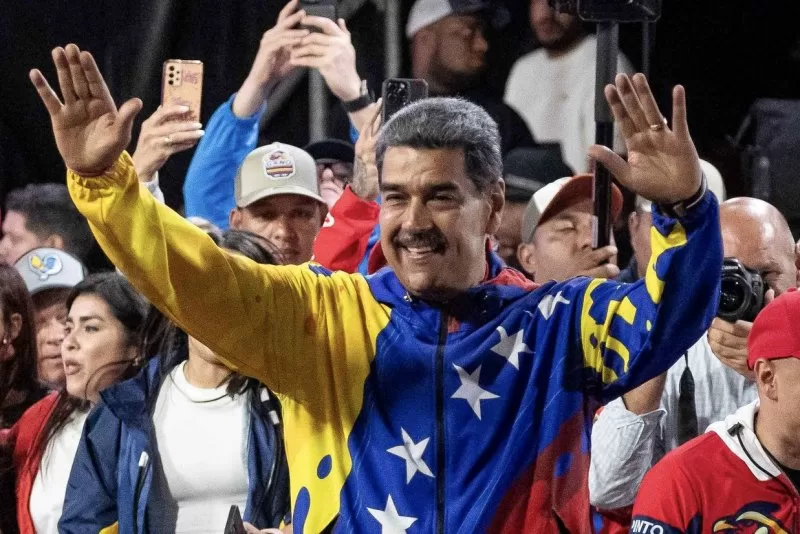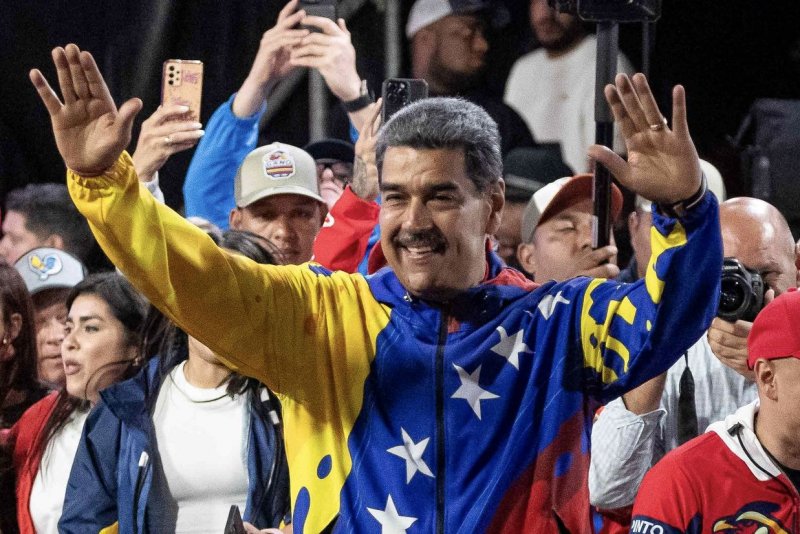1 of 4 | Venezuelan President Nicolas Maduro (C) celebrates his controversial election win, in Caracas, Venezuela, on July 29. A new report Tuesday says Venezuela’s government has ramped up efforts to repress peaceful protests in the wake of the disputed election, creating a human rights crisis. File Photo by Ronald Pena R./EPA-EFE
Sept. 17 (UPI) — Venezuela’s government is ramping up efforts to repress peaceful protests in the wake of President Nicolás Maduro’s disputed election win in July, according to a new report Tuesday that warns political persecution is plunging the nation into a human rights crisis.
“We are witnessing an intensification of the state’s repressive machinery in response to what it perceives as critical views, opposition or dissent,” said Marta Valiñas, chair of the UN Independent International Fact-Finding Mission on the Bolivarian Republic of Venezuela.
U.S. Secretary of State Antony Blinken spoke with Venezuelan democratic opposition leaders Edmundo González and Maria Corina Machado on Tuesday and commended “their courage and commitment to democratic principles in the face of brutal repression and adversity,” according to State Department spokesperson Matthew Miller.
Blinken assured González and Machado that the United States will continue to “champion a return to democratic freedoms in Venezuela, strive to ensure the will of Venezuelan voters is respected and hold Nicolás Maduro and his representatives accountable for their actions.”
On Sunday, Venezuela arrested six people including three U.S. citizens and accused them of participating in a CIA-sponsored plot to kill Maduro and several members of his government. The U.S. State Department called the allegations “categorically false.”
Maduro claimed the presidency following July’s election, despite opposition leader González citing tally sheets that gave him 67% of the vote and calling the election stolen.
According to Tuesday’s Fact-Finding Mission report, human rights in Venezuela between September 2023 and August 2024, and the rule of law, deteriorated leading up to and after the presidential election.
Prior to the election, at least 48 people — including military personnel, political opponents and journalists — were detained for what the government described as conspiracies. In July, more than 120 were arrested for participating in opposition campaign events. After Maduro’s contested win, more than 2,000 people were detained including more than a hundred children.
“Victims and a large part of the population are exposed to the arbitrary exercise of power, where arbitrary detention is systematically used, with serious violations of due process,” said Francisco Cox, expert of the Fact-Finding Mission. “The mission had previously warned that the government could activate its repressive apparatus at will, and that is precisely what we are now observing.”
Earlier this month, the United States issued sanctions and visa restrictions against those accused of silencing the opposition and interfering in Venezuela’s presidential election. That includes Maduro and 16 government officials.
“The government’s repressive plan and policy targeted individuals who dared to criticize President Maduro, question government policies or protest against electoral results,” said Patricia Tappatá, expert of the Fact-Finding Mission.
“The severity of the repression, the effort to demonstrate results through imprisonment, and the use of mistreatment and torture have instilled a climate of widespread fear among the population.”

